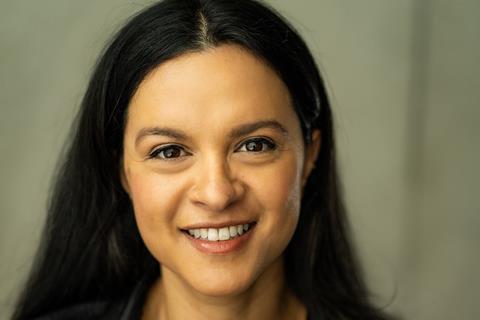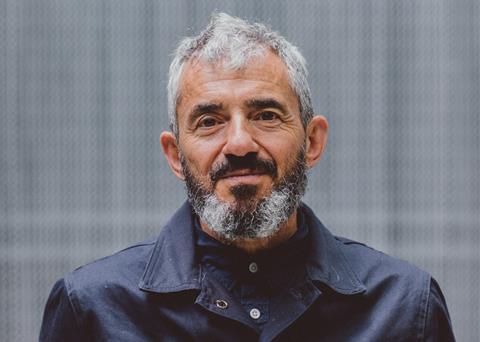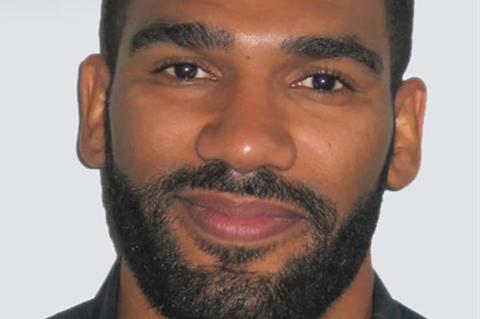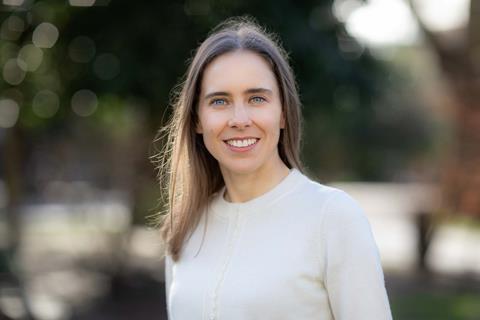[ad_1]
It has been a lustrous 2023 for Film4. Martin McDonagh’s The Banshees Of Inisherin scored four Baftas from 10 nominations, including outstanding British film. Jonathan Glazer’s The Zone Of Interest and Molly Manning Walker’s How To Have Sex clinched the grand prize and Un Certain Regard prizes at Cannes, respectively. Yorgos Lanthimos’s Poor Things won the Golden Lion at Venice, and the UK funder broke its own record at the BFI London Film Festival with 10 features programmed, including the closing-night film, Kibwe Tavares and Daniel Kaluuya’s The Kitchen.
“What Film4 stands for and has always stood for is innovation, risk, diversity of voice and underrepresented voices,” says Ollie Madden, director of Film4. “What that looks like and feels like is constantly evolving, and we’re always tirelessly finding the best new wave of voices, and working hard to continue to support the filmmakers we work with. Our slate this awards season is representative of that spread.”
Film4 is the feature film division of UK public service broadcaster Channel 4, funded by commercial revenue. Having gone through several iterations over the years since launching in 1982, it now has a budget of around $30m (£25m) per year, the bulk of which is spent on production and co-financing around 10-12 films per year (it rarely fully funds) of which at least four are debut features.
Film4 develops around 80 to 100 projects at any one point, with short films also funded out of the development pot. It recently teamed with the British Film Institute (BFI) for an open access Future Takes programme, funding nine shorts with substantial budgets of between $67,000-$110,000 (£55,000-£90,000).
“We have a great appetite for risk and exploration,” continues Madden. “There are a lot of people out there who will make things once they are fully packaged and ready, but the resources for filmmakers and producers who are working with just the kernel of an idea are fewer. That’s a vital part of the infrastructure here that we’re able to provide.”
While Film4 keeps quiet on the exact production and development funding split, Madden says “millions” is spent on development, and proudly describes Film4 as “the biggest source of development funding for film in the UK, outside of Hollywood studios”.
In May 2022, then-director of Film4 Daniel Battsek moved up to the newly created role of Film4 chairman, where he sits on the Channel 4 CEO committee and hears first-hand the goings-on at the channel. Madden, who joined Film4 in 2017 as head of creative, was promoted to the role of director.
“That involved taking over the day-to-day running of Film4,” says Madden. “Daniel and I have worked together very closely, in sync for six years, and continue to. I look after oversight of Film4 and its slate, with the team. Daniel’s background is in distribution and production, and as all of our films are intended for global release — and the US market is incredibly important — Daniel’s history and expertise on that front is of great value.”
Team players

Farhana Bhula, who joined Film4 from the BFI Film Fund at the start of 2022 as senior commissioning executive, was promoted to head of creative in March of this year; Bhula reports to Madden, while senior commissioning executive David Kimbangi and head of development Ben Coren report to Bhula. Also on the creative team are development and production executives Alice Whittemore, Amy O’Hara and Max Park, and development assistant Megan Gilbert.
The ensemble of 22 is mostly based out of London, with O’Hara in Sheffield. It also features head of distribution and sales Stefanie Fahrion, head of business affairs Cassandra Carias, who runs a team of five, and head of physical production Tori Parry, with two direct reports.
Submissions are only accepted from producers and agents, with the creative team also actively scouting fresh filmmaking talent. “We are always drawn to filmmakers or talent who have a really distinctive voice, and our job is to help them realise their stories in their own voice,” says Bhula. “When we’re doing debuts, it’s about helping them land on the story that’s going to announce them to the world, with an eye on how the film will find its audience.”
If Film4 has developed a project, the script and materials will be presented to the wider team when they are ready. “There aren’t many places where you work in a [business affairs] team and you get to join in a creative discussion,” says Carias.
Of course, it is not always happy families. Kimbangi notes there is often “healthy heated discussion” within the team, as “everyone wants to see themselves represented on screen”.
While creative contributions are welcomed, decision-making is not by committee. “If somebody really wants to champion a project they have commissioned, they will do that,” says Fahrion.
Leading on distribution and sales, Fahrion’s two touchpoints are in late-stage development, working with producers to help identify the right sales agent for a project and to strategise the appropriate distribution partners and model for a film, and again when a project is in post-production, figuring out the launch strategy, approving sales deals and working on distribution campaigns.
“We’re their advocate. We’re there shoulder-to-shoulder,” says Battsek. “But we’re not overbearing or proprietorial. Making a film or investing in a film is an act of trust.”

For Battsek, support should be offered with an eagle eye on the market. “Knowing what the market is as a whole enables us to be smart about advising and supporting projects we feel have a real chance. You can’t project into the future, but you can use what we see around us to inform the way we support independent production. We don’t want to find ourselves on behalf of our filmmakers or ourselves going down blind alleys.”
Around a quarter of Film4’s annual production budget is spent on directing debuts. “In the debut space, we’re not looking at a commercial return at all,” says Carias. Debuts in the works include Thea Gajic’s Surviving Earth, supported by Film4 and the BFI, which has started shooting in Bristol, and Hot Milk, an adaptation of Deborah Levy’s novel, directed by Rebecca Lenkiewicz — whose screenplay credits include Ida and She Said— and starring Fiona Shaw and Jessie Buckley.
Commercial gains
Film4’s funding comes entirely from its advertising-funded parent broadcaster Channel 4 — which for now has escaped the privatisation push spearheaded by the UK’s Conservative government (which it abandoned in January 2023) alongside profit from its bigger-swing projects, such as McDonagh’s Three Billboards Outside Ebbing, Missouri and The Banshees Of Inisherin, both co-funded with Searchlight Pictures. Under the 2015-16 leadership of Battsek’s predecessor David Kosse, Film4 started taking bigger equity stakes, investing up to 50% in a project’s production funding.
“We are a non-profit organisation,” says Madden, “so those profits then go back into funding the development and newer talent, who typically aren’t profitable, but are ground-up development propositions we want to support and grow into filmmakers whose films can become profitable later on. It’s a virtuous circle.”
“The unique position that Film4 has in the film finance world is that we are able to operate in a commercial way, in order to support filmmakers going forward,” adds Battsek.
Carias further notes the funder uses its knowledge of the contractual terms of distribution deals for larger-scale features to push for better terms for producers on the smaller end. “That’s what launches careers in other ways — getting cash back into these companies,” she says. “Getting good deals for our producers is how we can add value, so they’re not just put in the debut box. We want the same deal as the big film.”
In 2019 Battsek said he wanted Film4 to be financially self-sufficient by 2020. “We were on that timeline, but the pandemic closed off theatrical for nearly two years, which in turn shunted all those potential revenue streams back,” he says. “[But] it’s what we have as our target at all times.”
“We are close to where we wanted to be, and need to be,” Madden stresses. “There have been years where we’ve been over this target. You have to look at it holistically.”

A central part of Film4’s strategy continues to be growing with its filmmakers. Big-ticket directors helping to commercially sustain Film4 were its early career outliers of yesterday, with McDonagh, Jonathan Glazer, Steve McQueen and Lanthimos, who made his first English-language film with Film4, key examples.
Lanthimos’s Poor Things, a Victorian-era tale based on a novel by Alasdair Gray and starring Emma Stone, Willem Dafoe and Mark Ruffalo, is one of Film4’s biggest single feature film investments to date. Film4 had worked with Lanthimos on The Lobster, The Favourite and The Killing Of A Sacred Deer, all of which have been produced by Element Pictures.
On Poor Things, Film4 was involved in ground-up development, helping Element option the novel in 2016 and supporting Tony McNamara to adapt the text. During advanced development of the script, conversations began with Searchlight, which had previously come on board for The Favourite, to co-finance and distribute. Film4 is also working with Element Pictures and Searchlight on Lanthimos’s next feature, and there are talks in motion on further projects with the Greek filmmaker.
Also bubbling away at Film4’s Horseferry Road HQ in London are more features with Living filmmaker Oliver Hermanus and McQueen. There are hopes for an early 2024 festival launch for Rose Glass’s Love Lies Bleeding, her anticipated follow-up to Saint Maud, co-financed with A24. Film4 also backed Eileen, William Oldroyd’s follow-up to his debut Lady Macbeth, starring Thomasin McKenzie and Anne Hathaway, and Andrew Haigh’s fourth film, All Of Us Strangers. The funder is at development stage on projects with How To Have Sex filmmaker Walker, and working on follow-up features with Mark Jenkin (after Bait and Enys Men) and Ben Sharrock (following Limbo).
Madden admits there is more to be done to help filmmakers maintain momentum throughout their careers. “The biggest thing we want to double down on is not having a polarised industry, where a lot of resource and effort is put into launching new filmmakers, and then everyone galvanises around the most established filmmakers,” he says. “The bit in the middle has been massively overlooked.”

“I would like to see more diverse voices in the second, third, fourth space,” Kimbangi adds. “The debut space has been healthy here, and at BBC Film and BFI. Now we need to see established filmmakers from all different backgrounds.”
Film4 does not have diversity standards as a contractual requirement for funding, as is the case with the National Lottery-funded BFI. However, it does have its own internal diversity targets, and notes all productions meet or readily exceed the BFI diversity standards.
Funding flexibly
Piecing together the financing for independent UK film can be the stuff of nightmares. “Finding financing has become more challenging. Due to rising costs, even a debut film costs more than it did to make a year or two ago,” says Fahrion. “We are finding innovative ways of financing things — we’re making debuts with BFI and some American equity financing, like [Amrou Al-Kadhi’s debut] Layla.”

Film4 has working templates with its regular partners, such as the BFI, Searchlight and Focus Features, but it will not go as far as signing output or first-look deals with studios or streamers. “We would never want to limit our producers’ ability to make the right deal or choose the right partners,” says Madden.
The funder has not shied away from making the most of the US streamers’ deep pockets, in particular Netflix, which co-financed dystopian drama The Kitchen, starring musician and Top Boy actor Kane ‘Kano’ Robinson. The Kitchen had been in development for 10 years at Film4. “We couldn’t have done The Kitchen with anyone but Netflix,” admits Madden. “It’s about five times as expensive as an ordinary debut film. We love our relationship with them and want to keep working with them.”
But the streamer spending contraction cannot be ignored. “There’s no question — there was a surge two or three years ago, at one point we had four or five projects a year that were part or majority financed by a streamer, or where they bought worldwide rights,” says Madden. “It’s far fewer now, but we are maintaining those relationships.”
Channel 4 has had its own struggles, pausing TV shows amid an advertising slump. Madden assures that Film4 is in an encouraging place. “It’s no secret the advertising market is a little down this year,” he reflects. “That’s for all ad-funded broadcasters — we’re not alone. We will always work closely with Channel 4 to make sure we spend within our means. Our budgets going forward are going to be healthy.”
“We want to be as broad-minded [as possible] about where we find talent,” notes Madden. “We need to make sure we’re not stuck in a rut of looking at the same sources, the film schools, shorts, microbudget or small features that hit the indie circuit. There is extraordinary talent in theatre, commercials, fine art, all sorts of different disciplines.”
Building Future Takes as an open-access scheme has been an integral part of realising this goal, says Bhula. “We launched Future Takes partly to unearth the things we were missing, and get people to submit ideas we hadn’t seen elsewhere — to find voices that were delving into genres that were missing on us.”
Remaining competitive

Another priority is to support emerging UK independent producers. “Sometimes, slightly depressingly, I look back at when I started in this industry 25 years ago, and the established production company list then is not that different to how it is now,” says Madden.
Producers are paid a set development fee across the lifetime of a project’s development, regardless of the film’s size or budget. Madden stresses that Film4 does everything in its power — “and it’s not entirely in our power” — to make sure competitive producing fees are maintained, and to avoid fee deferrals where possible. An associate producer scheme has been running since 2021 to offer on-set experience to the next generation of producing talent.
Bhula is keen to buoy the next generation of producers to go after more ambitious intellectual property. “That’s where we can add value, we can help them to go after things they might not [otherwise] be able to,” she says. “That’s something I’d love to see us do more of. There’s a level of producers who have those relationships with the big literary agents, but it’s supporting the next generation of producers to go up to the next level.”
“It is our remit to support the British independent production sector,” confirms Madden. “We rely on the health of that sector to do what we do. It’s hard at the moment. We are compassionate and, frankly, full of awe for how resilient the industry is.”
[ad_2]
Source link
– Armessa Movie News
